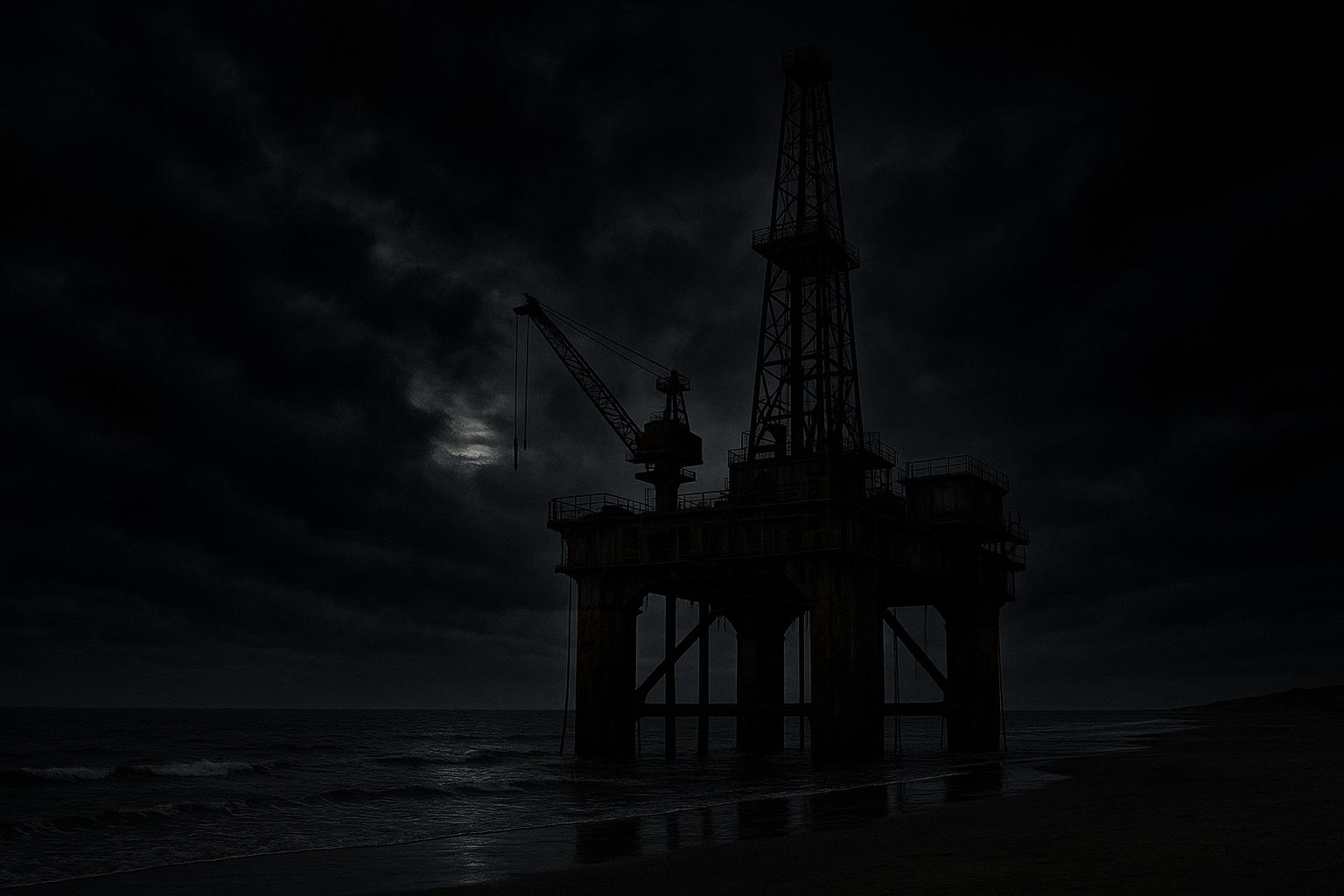The UK government has announced its "strongest sanctions yet" targeting Russia, imposing comprehensive measures aimed at crippling the country’s energy sector and associated maritime operations. The sanctions, which involve 90 new listings, prominently target Russian energy giants Rosneft and Lukoil — companies critical to Russia’s oil production capacity. Rosneft alone accounts for 6% of global oil output and nearly half of Russia’s total oil production, while together with Lukoil, these firms export about 3.1 million barrels of oil per day. This latest wave of UK sanctions follows earlier measures against Gazprom Neft and Surgutneftegas, Russia’s third and fourth largest energy companies.
The sanctions introduce a suite of restrictions including asset freezes, director disqualifications, credit limitations, transport bans, and prohibitions on British trust services. There are also robust measures affecting the maritime sector: 44 parallel fleet tankers, seven liquefied natural gas (LNG) carriers, and related vessels have been blacklisted. Sanctioned ships are barred from docking in UK ports, can face detention, and are prohibited from registering under the UK flag. Furthermore, the sanctions are expected to further constrict the availability of insurance for vessels carrying Russian cargo linked to these entities, effectively isolating Russian maritime trade from essential financial and logistical services.
In a notable expansion, the UK government has extended its sanctions to entities and infrastructure facilities in third countries that facilitate Russian energy exports. This includes the Indian Nayara refinery in Mumbai, owned by Russian interests and alleged to have imported over 100 million barrels of Russian crude in 2024 with an estimated value exceeding $5 billion. The UK is explicitly prohibiting imports of refined products derived from Russian-origin crude refined in foreign countries. Additionally, four Chinese oil terminals and the Beihai LNG terminal in China—linked to Russia’s LNG2 project previously sanctioned by the UK—are now targeted for their role in supporting Russian energy exports.
UK officials have framed these sanctions as part of their broader strategy to undermine Russia's war effort and bolster European and UK security. UK Foreign Secretary Yvette Cooper emphasised the importance of Ukraine's security for the stability of Europe, describing the sanctions as a step towards a "just and lasting peace" and strengthening the UK domestically. She noted that over 2,900 individuals and entities connected to Russia are currently under UK sanctions, with the government prepared to escalate measures further. Chancellor Rachel Reeves reinforced this stance, declaring that “Russian oil is off the market” as a clear signal to global players.
These UK sanctions form part of a coordinated international response to Russia’s ongoing military aggression in Ukraine, with similar moves by the United States targeting linked shipping networks and trade nodes. The US, for example, has recently imposed sanctions on Chinese companies and terminals involved in Iranian oil imports via shadow fleets, highlighting the increasing use of maritime "shadow fleets" to evade sanctions globally. Notably, the US government sanctioned the Rizhao Shihua Crude Oil Terminal in China for its role in receiving Iranian oil transported by sanctioned tankers, causing significant disruptions in oil unloading and port congestion. Several supertankers were rerouted from Rizhao to alternative Chinese ports such as Zhoushan and Ningbo, straining infrastructure and complicating logistics for major refiners like Sinopec and TotalEnergies.
The UK is also taking targeted action against specific firms in China and India that are complicit in facilitating Russian oil exports, signaling a readiness to press third-party nations to comply with sanctions policies. British Finance Minister Rachel Reeves warned companies in these countries against becoming circumventors of sanctions, underscoring a broader diplomatic effort to choke off Russian revenue streams by disrupting their global supply chains.
Shipping and logistics challenges created by these sanctions are mirrored in both the Russian and Chinese spheres. The blacklisting of Russian LNG carriers such as the newly built Buran, Zarya, Voskhod, and Christophe de Margerie, together with vessels flagged in the Marshall Islands and Malta, is expected to severely hamper Russia’s LNG export capabilities. Meanwhile, disruptions to Chinese port operations following US sanctions on terminals handling sensitive cargos—like Iranian oil—present a complex web of regulatory, commercial, and operational risks for global energy markets.
Taken together, these multifaceted sanctions reinforce the international community’s resolve to restrict Russia's economic capabilities. The UK government’s latest measures signal an escalation in the sanctions regime, expanding beyond Russian entities to include foreign companies and infrastructure complicity, thereby tightening the net on Russia’s shadow fleet and energy export mechanisms.
📌 Reference Map:
- Paragraph 1 – [1], [2]
- Paragraph 2 – [1], [2]
- Paragraph 3 – [1], [4]
- Paragraph 4 – [1]
- Paragraph 5 – [1], [2], [4]
- Paragraph 6 – [5], [3], [6]
- Paragraph 7 – [1], [2], [4]
Source: Noah Wire Services
